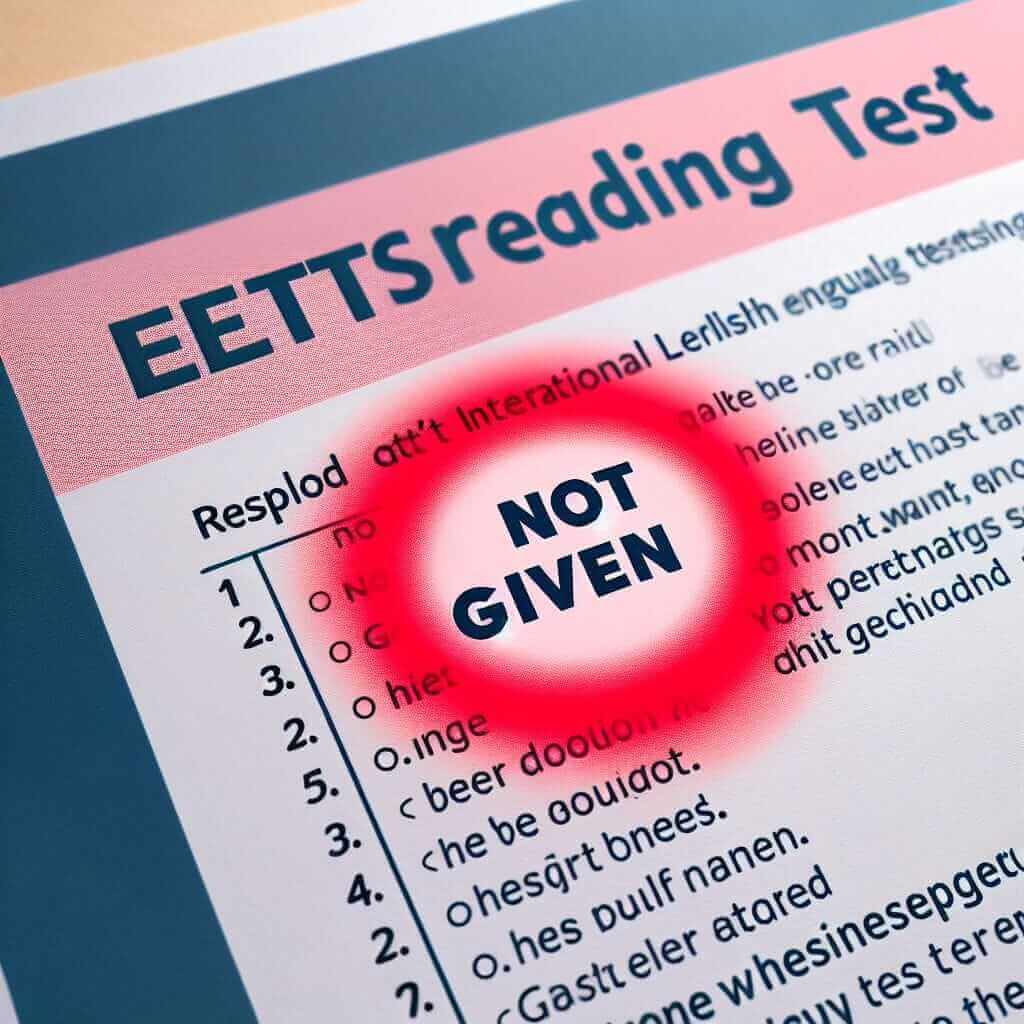As an IELTS instructor with over 20 years of experience, I often encounter students asking about the dreaded “Not Given” option in the IELTS Reading test. Specifically, they want to know: Can we write “NG” for Not Given? Let’s delve into this common query and clarify the correct approach.
Understanding “Not Given” in IELTS Reading
The IELTS Reading test assesses your ability to comprehend information presented in academic texts. You’ll encounter various question types, including True/False/Not Given or Yes/No/Not Given. These questions require you to determine if the information in the text:
- Matches the statement (True/Yes)
- Contradicts the statement (False/No)
- Is Not Given in the text
The “Not Given” option often causes the most confusion. It means the passage doesn’t contain enough information to determine if the statement is true or false.
Addressing the “NG” Question
Now, back to our main query: While “NG” is a common abbreviation for “Not Given,” it is not recommended to use it on your answer sheet. The official IELTS instructions clearly state that you must write your answers in full: TRUE, FALSE, NOT GIVEN (or YES, NO, NOT GIVEN).
Using abbreviations like “NG” risks your answer being marked as incorrect, even if you understood the passage correctly.
Using abbreviations like “NG” risks your answer being marked as incorrect, even if you understood the passage correctly.
Tips for Tackling “Not Given” Questions
Here are some strategies to effectively handle “Not Given” questions:
- Read Carefully: Scrutinize the passage for keywords related to the statement.
- Look for Synonyms and Paraphrasing: The passage might convey the same idea using different words.
- Don’t Over-Infer: Base your answer solely on the information provided in the text. Avoid making assumptions or drawing conclusions that are not explicitly stated.
- Practice Makes Perfect: The more you practice with IELTS Reading passages, the better you’ll become at identifying “Not Given” statements.

Example from an IELTS Reading Passage
Let’s say the passage states: “The use of renewable energy sources has been increasing globally.”
Statement: The cost of renewable energy has decreased significantly.
Answer: NOT GIVEN. While the passage mentions the increasing use of renewable energy, it doesn’t provide any information about cost.
In Conclusion
While it might be tempting to use “NG” for convenience, always stick to the official answer choices: TRUE, FALSE, NOT GIVEN (or YES, NO, NOT GIVEN). By understanding the nuances of “Not Given” and applying effective reading strategies, you can confidently tackle this question type and improve your overall IELTS Reading score. Good luck!